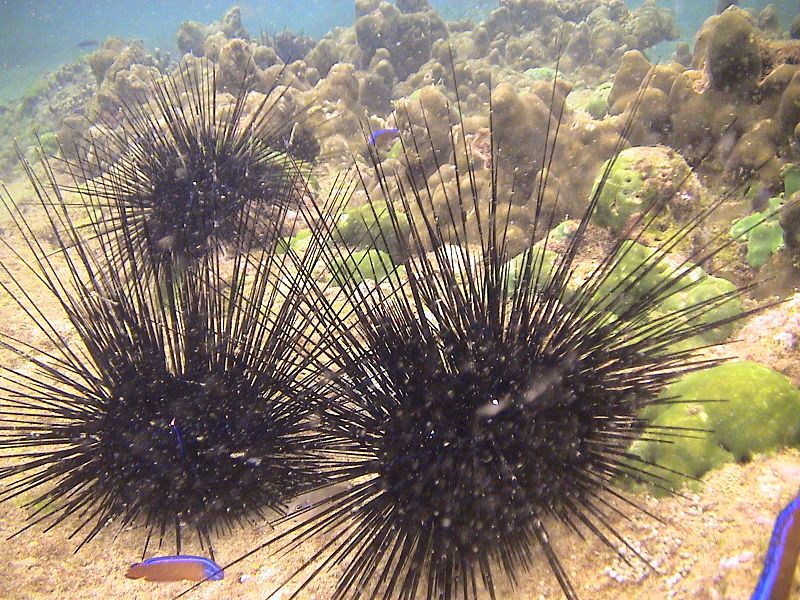
It's one of the most fundamental processes in an animal's life cycle: the swift, tense race among sperm to reach and fertilize an egg.
Now new research into how the process works in sea urchins has turned up fascinating new insights, revealing how sperm from different males can compete for the same egg, how eggs may get a "choice" in which sperm fertilizes them, and how the process can lead to the creation of whole new species.
Florida State University Chair and Professor of Biological Science Don Levitan studied the reproductive process of sea urchin populations off the pacific coast of Canada, according to a statement on Phys.org. His research has been published in the journal American Naturalist.
In their natural environment, sea urchins fire out pockets of eggs and sperm, leaving them to fertilize as they drift about in the water.
During Levitan's experiment he "induced male sea urchins to spawn" and then collected the seawater in syringes packed with eggs. Levitan then carried out paternity tests on the eggs in his syringes, to find out how many different males' sperm were present.
"While we expected to find that single eggs generally encounter sperm from a single male, we found that eggs are often simultaneously encountering sperm from more than one male in the brief interval between sperm contact and fertilization," Levitan said.
"This is the first evidence that sperm from different males compete for the same egg, which indicates an opportunity for eggs to have a choice."
Sperm hunting for an egg to fertilize are coated with "recognition proteins" that help them bind to receptive eggs.
"According to a traditional understanding of selection processes, the sperm with more effective proteins should be selected for systematically, whereas sperm with less effective proteins, with their inferior fitness for fertilization, should be quickly culled from the gene pool," the Florida State release said.
"However, it's often the case that sperm with less effective recognition proteins are actually more likely to successfully fertilize an egg."
"It's a little puzzling," Levitan said. "One would think that within a species, the most compatible protein should always be selected. So why do we consistently see variation in the effectiveness of these proteins in the population?"
Some of Levitan's previous work may hold the answer: he has found before that to avoid the (fatal) possibility of being fertilized by multiple sperm at once, eggs sometimes develop lower compatibility surfaces.
"This can produce a mixture of sperm and egg compatibility types that sets the stage for sperm competition and egg choice," the statement said.
"When sperm from multiple males arrive at an egg concurrently, eggs are able to choose the sperm whose recognition proteins are best suited for healthy fertilization.
"This selection process can spur the evolution of new recognition proteins, eventually resulting in reproductive isolation and, in some cases, the creation of new species altogether."
Levitan hopes that his research might spur others to look into whether any mammals exhibit this kind of sperm-egg choice and competition.
Uncommon Knowledge
Newsweek is committed to challenging conventional wisdom and finding connections in the search for common ground.
Newsweek is committed to challenging conventional wisdom and finding connections in the search for common ground.
About the writer
Josh is a staff writer covering Europe, including politics, policy, immigration and more.
To read how Newsweek uses AI as a newsroom tool, Click here.








